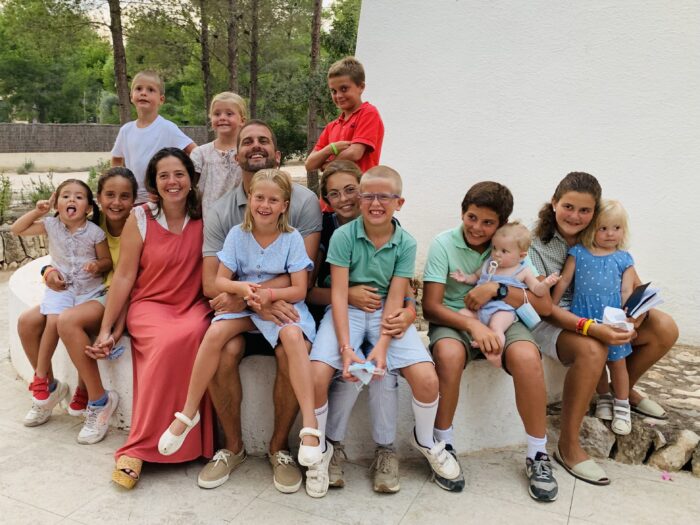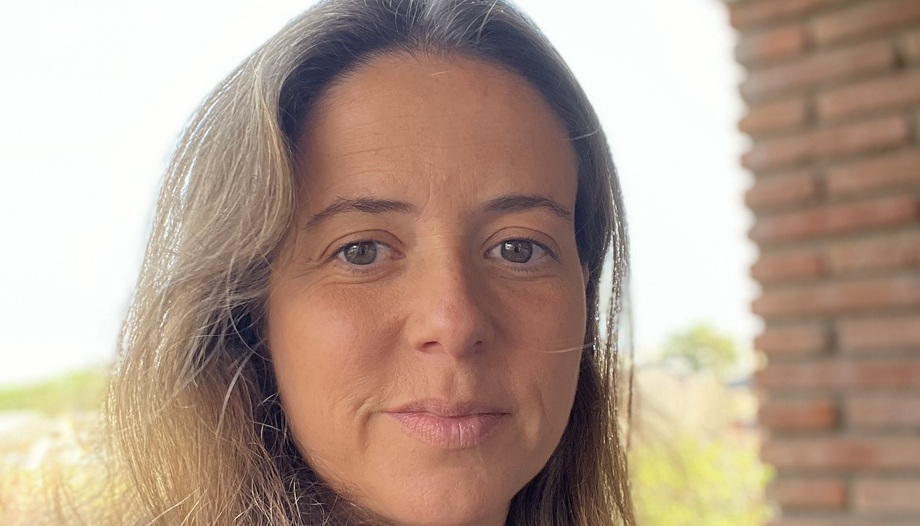The lack of real interpersonal relationship and the increase of a virtual relationship (more ideal) have favored the fear of error, of making a mistake, of showing an image of oneself that does not meet social standards, and "have increased the pictures of depressionanxiety, the need for approval, the cult of the body and even the inability to be assertive for fear of rejection," says Patricia Díez Deustua, PhD in Psychology, clinical psychologist and family therapist at the Multidisciplinary Unit for Family Assistance (UMAF).
This professor of the International University of Catalonia (UIC) lives in Sant Cugat del Vallés, is a mother of twelve children, and considers, in this interview with Omnes, that in the context she cites "the concept of forgiveness as the basis of human relations is once again gaining importance. Asking for forgiveness and forgiving are forms of love applicable to any society".
What does it take to understand forgiveness?
-Understanding who the person is and how he/she manifests him/herself. We all manifest ourselves to others and to the world at three levels: a cognitive, an affective and a behavioral level. That is to say, through our way of thinking, feeling or behaving we define who we are. This is what we call personality. One thing is who I am and another how I behave.
And what do we mean by offense?
-The offense refers to a moral wrong that is felt by a subject as a transgression to his or her person, causing a certain degree of discomfort in the person who suffers it.
In this sense, the offense can be objective or subjective, because it can be the result of the subject's interpretation of certain facts or it could be based on sensations, for example. A person may intend to offend another and yet not offend him because his emotional level has not been altered after the alleged offense.
It could be the case of a small child who thinks that by telling his mother that he does not intend to pull up his socks he could offend her; or the typical opposite situation, in which a WhatsApp is interpreted as offensive when it was not intended to be because the intentionality or the tone in which it was written has been interpreted.
It has an emotional impact...
-Correct, for something to offend me means that it has altered my affective plane. The offense is an evil that is felt, it hurts me, it offends me, it affects me in some way in a negative way, it transgresses me. If this transgression did not exist, this negative emotional impact, we could not be talking about forgiveness because nothing would be offending me. The offense refers to this negative affectation that impacts on the offended: "the self feels hurt", negatively affected by something, which reason interprets as bad. Therefore, when we speak of interpersonal forgiveness, there are three elements to take into account: the offense, the offender and the offended..

Forgiveness is born from the one who feels offended...
-Yes, the one who has the possibility to forgive or not the evil received by the offender. That is to say, when someone offends, the one who has the power to initiate a process of forgiveness is the offended person: an external evil affects me and I am responsible for repairing, reestablishing or doing something about it or deciding not to do it; the ball is now in my court without having decided to do so.
This reflection is undoubtedly interesting because we must be aware that forgiveness is born from the offended subject and therefore does not need the repentance of the offender for it to happen, although it is undoubtedly easier. I can decide to forgive, as the free subject that I am, independently of the attitude of my offender, and free myself from the evil that conditions my emotional state.
Define forgiveness.
-There is consensus on issues such as forgiveness is a free act of the will; it is not forgiven by mistake or unintentionally; it seeks to reduce the negative feelings resulting from the offense while promoting positive feelings and good motivations toward the offender. We found consensus in involving benevolence as part of the process.
We could define forgiveness as an act of love, understood as taking a position before a person and before an evil that is presented to us; we choose to love the person, but not the evil committed. In this sense, the one who forgives recognizes the evil and values it as such, but does not equate the evil action with the subject who commits it, but is able to see in him a person worthy of being loved in spite of his mistakes.
By taking a position, we mean that, although it is born from an act of free and voluntary decision to want to forgive, it is possible that this act must be renewed when negative emotions appear. That is why in psychology, instead of an act, we speak of the process of forgiveness, because it requires a period of time..
There are several processes involved in forgiveness.
-Forgiveness is a process that is necessary for forgiveness to take place, although not at the same time. On the one hand, he describes a cognitive process, a decision to forgive the other (Decisional Forgiveness) and, on the other hand, an emotional process. That is, the heart has its time and although I can decide to forgive at a given time, not always when it is easy to decide, the damage could still produce discomfort (Emotional Forgiveness).
What role does the affective part of the person play?
-Affections are about the impact that the world and the things that happen in it have on me, therefore, they arise in any circumstance.
Not only do they have a subjective character (each one is affected by things in a certain way) but, in addition, we do not choose the magnitude of how I am affected. What is proper to the person -as a rational being and different from the animal- is, precisely, to direct that affection with reason and to weigh the concrete circumstances that surround him. It is up to the animal to respond directly to affect: I am hungry, I eat; I am sleepy, I sleep; I am angry, I attack, etc., because it moves within an instinctive framework of behavior. The person has the capacity to possess himself and to manage his affections towards the most prudent behavior.
I do not decide how or how much things affect me, but I do decide what to do with that affection and thus I manage to control it, diminish it, increase it, etc. Therefore, the ability to differentiate facts from sensations, the objective from the subjective, the offending person from the offended person, etc., is of great importance.
A distinction is made between the person and his or her actions.
–When a person forgives another person, he is communicating that he is worth more than his actions, that he is worth more than his mistakes and that what he is worth is worthy of being loved. The person is always worth, his actions are not. In other words: the value of people is absolute, the value of their actions is relative. For this reason, forgiveness is the most perfect form of love, because it returns good when we receive evil. Forgiveness implies a change of look at the offender, becoming a benevolent look without detracting from the realism of the evil committed. This is the reason why forgiveness is not at odds with justice. The wrong must be repaired and such reparation may even be demanded by the offended party, who believes that the reparation is doing good to the one who committed the offense. This is the case of mothers who, having forgiven their children for a prank, nevertheless demand that they go to the room to refrain or abstain them from some reward.
Tell me something to help me understand.
-Those who know they are fragile are more capable of understanding the error of others. Empathy is one of the variables that have been shown to condition (but not determine) forgiveness. In other words, it is necessary to know oneself to be fragile in order to understand the fragility of others. And it is then that we could affirm that it is fair to forgive as well as it could be fair to want reparation for the offense. In this sense, forgiveness, as the authors say, is not forgetting or condoning. If one person steals from another, the situation could be said to demand both forgiveness from the offended and reparation from the offender, even if it is not necessary for forgiveness to occur.
In addition, forgiveness is a process....
-Imagine for a moment that you decide to forgive your partner who has run the company you were running together into the ground. You make the decision to forgive him and you even believe that you have succeeded. But it is also possible that when you pass by his house you will relive the feelings that once offended him. That does not depend directly on anyone. It is at that moment that one has to renew the decision to forgive, but the process already started with the first decision.
The process that begins with a decision ends with peace, both with the offender and with the offense; the offense no longer offends me and I am able to feel positive affection towards my offender. To forgive is not to forget the offense but to forget the pain it has caused me; it is to be able to think about it without feeling affected by it because I have achieved peace. Forgiveness leads to a possible reconciliation where the relationship is strengthened.
A message I would like to convey.
-We need a culture of forgiveness, of unity that overcomes brokenness, loneliness, anxieties, etc.; we need to rehabilitate a culture in which people grow and develop with the experience of being loved unconditionally, regardless of the mistakes they may make. The seed of this culture, so necessary for the psychic and spiritual health of society, is cultivated in the family.








